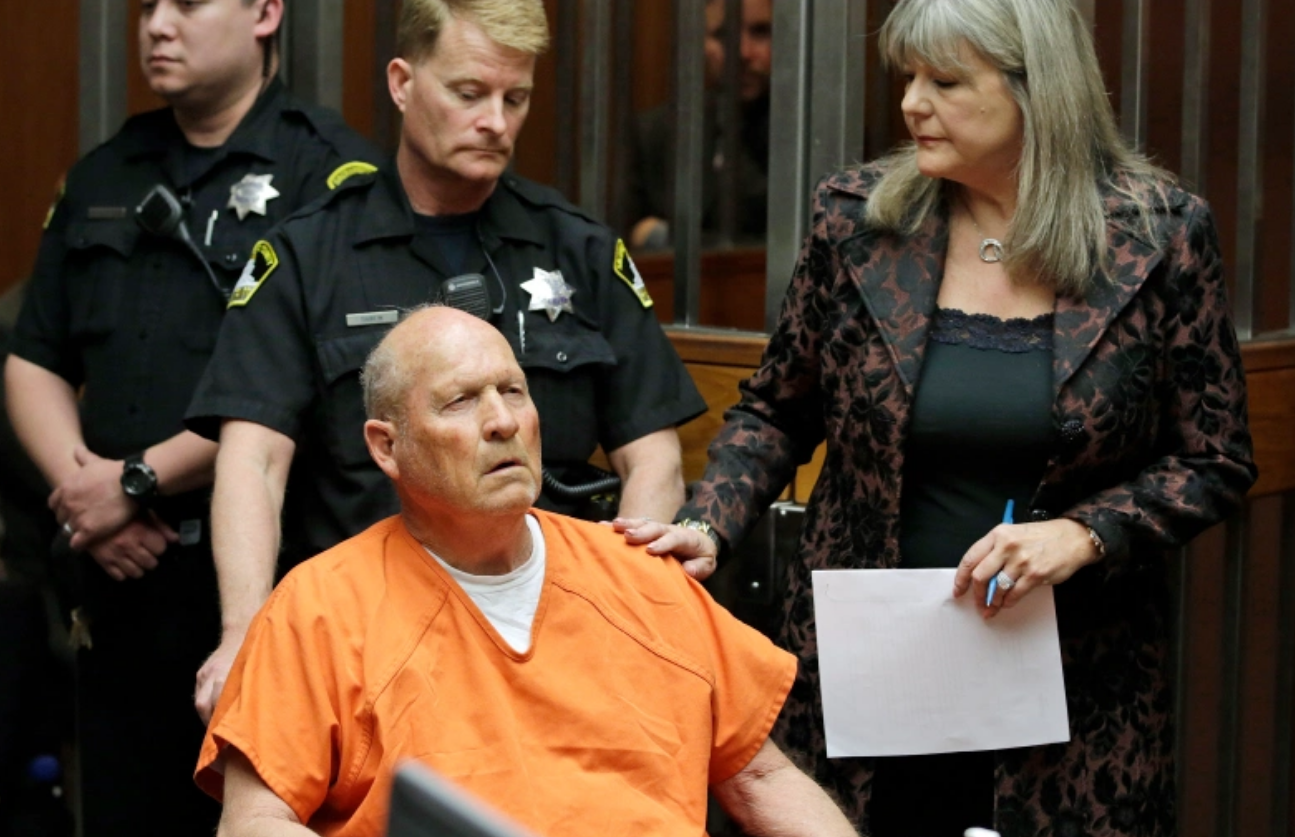The incident is described in Michelle McNamara's book and depicted in an HBO
July 1, 2020
Orange County sheriff's investigators smuggled boxes of statewide evidence on the Golden State Killer to a true-crime author in 2016, foreshadowing an internal audit that showed the agency had systemic problems mishandling such evidence, court papers show.
Detectives assisted now-deceased author Michelle McNamara in carrying out a preplanned "heist" of evidence from department headquarters, helping McNamara and her co-worker sneak 37 boxes and two bins of Golden State Killer evidence past the undersheriff, who had stepped out of the building.
McNamara's book, "I'll Be Gone In The Dark," describes the incident, but does not identify the undersheriff, who would have been John Scott.
The scene is re-created in a six-part HBO docuseries premiering Sunday. For months, the important evidence sat in the playroom of a home owned by McNamara and her actor husband, Patton Oswalt, potentially creating chain-of-custody issues for the prosecution in the serial killer case against Joseph DeAngelo, 74.
Accused of 13 murders and kidnapping charges over the last 30 years, DeAngelo is expected to plead guilty Monday in a deal that will spare him the death penalty.
The smuggling incident foreshadowed an evidence scandal now engulfing the Sheriff's Department. A 2018 audit showed that deputies systemically booked evidence such as cash, drugs, weapons and photographs late and sometimes not at all. At least four deputies have been fired in the aftermath and two have pleaded guilty to misdemeanor failing to fulfill their duty, receiving informal probation and no jail time.
Meanwhile, criminal defendants have pleaded guilty to cases in which the evidence had not been filed, which means it didn't legally exist.
In a motion filed Thursday, Assistant Public Defender Scott Sanders cited the disparity in cooperation given to the true-crime author in her search for the Golden State Killer with that of criminal defense attorneys. Sanders is seeking a new trial for a man serving a life term for murder.
Sanders' motion, which he will argue in mid-July, asks a judge to order the Sheriff's Department to turn over lab evidence in his client's case.
Carrie Braun, a spokeswoman for the Sheriff's Department, responded: "We trust the Court will make a determination on the merits of this case, not a sensationalized motion."
Sanders complained in his motion that the sheriff-controlled crime lab insisted in court that it would be too burdensome to look for and produce DNA evidence that might benefit the defense of his client, Lynn Dean Johnson, who was convicted of the 1985 rape and murder of Bridgett Lamon in Anaheim. Johnson is in the 16th year of a life sentence with no parole.
"(Crime lab) Director Bruce Houlihan told a court it wasn't fair to make the Crime Lab search aimlessly through thousands of boxes for reports. He knew it wasn't true. His lab has been working with three databases since the '90s to solve cases," Sanders said. "He just didn't want the defense to see the reports. What Houlihan did is nothing short of criminal."
A crime lab worker initially reported that Johnson's sperm — found inside Lamon — had not been deposited at or near the time of death. But the worker and his supervisor later changed their minds. That supervisor reversed herself again in another case with the same set of DNA circumstances. The supervisor, Mary Hong, now works for the state and figures highly in the Golden State case.
Meanwhile, an investigation by the Sheriff's Department and the Orange County District Attorney's Office into the evidence booking problems is ongoing.
